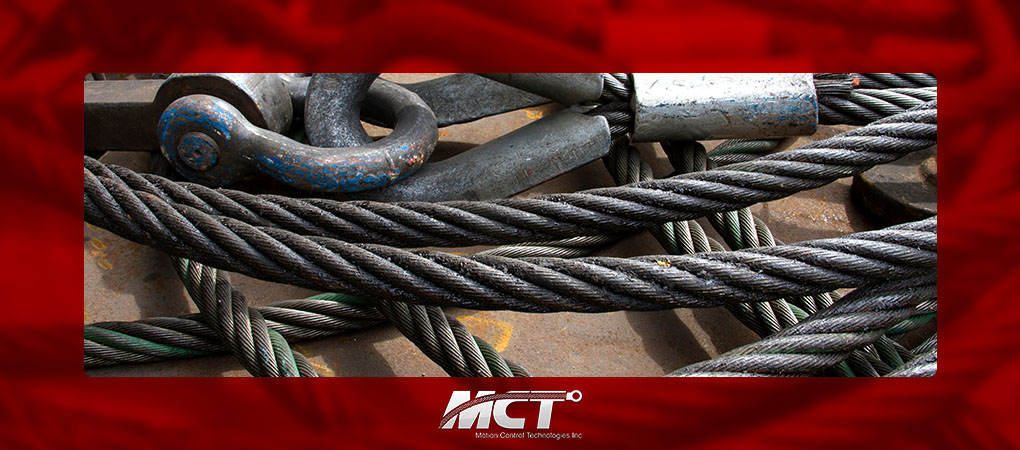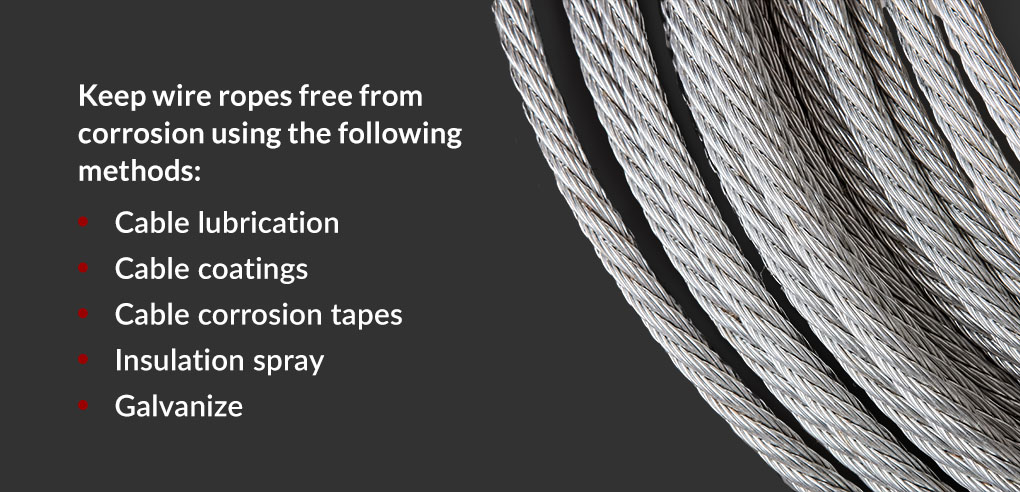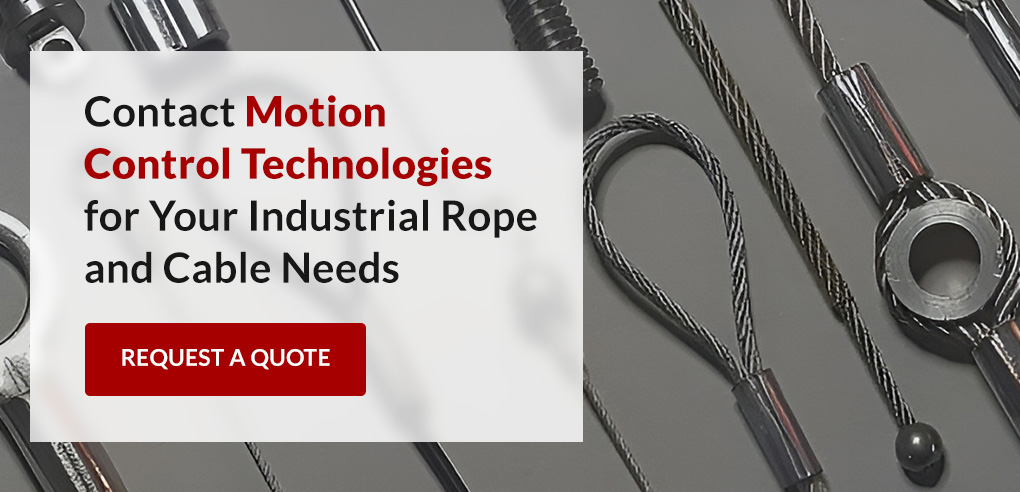
Wire rope is frequently used in various environments and industries. As a result, it can suffer from rust and corrosion over time. Corrosion in cables is a safety concern as the integrity of the metal strands becomes compromised.
Metal strands become stiff and brittle as they corrode, making the wire rope prone to damage and breakage. The wire rope's life span will shorten and reduce its functionality. Since corroded cables cannot carry heavy loads, they may cause damage or injury.
Metal cable corrosion protection is a priority to avoid rust, increase the cable's life span and save on the cost of replacing cables.
Understanding the Causes of Wire Rope Corrosion
The cable's location can increase the corrosive effects on metal strands. Underground environments and saltwater can speed up rust. In addition, these locations can make detecting corrosion difficult. Understanding the cause of corrosion is the first step in prevention.
What Causes Corrosion on Wire Ropes?
Corrosion is a natural chemical reaction that causes deterioration in metals. Rust forms when metal is exposed to moisture and oxygen in the atmosphere. Many environmental factors can impact wire ropes, including:
- Salt: Cables are often placed in or near the ocean in marine industries. Saltwater is highly corrosive to metals that are exposed to it for long periods of time in coastal environments.
- Chemicals: Cables placed in close contact with acids and bases can suffer corrosion.
- Damage: Damaged wire ropes can create weak points that cause pitting corrosion.
- Galvanic corrosion: Dissimilar metals in contact can cause a corrosive chemical reaction.
The Impact of Weather and Environmental Conditions on Ropes
Various weather conditions and environmental factors affect wire rope corrosion. For example, steel can rust when exposed to hot, humid weather. Saltwater can also rust steel in marine or fishing industries. The longer that metal is exposed to the elements, the more damage it will sustain.
Here are two types of corrosion caused by environmental factors:
- Environmental cracking corrosion: Caused by stress on the metal strands.
- Flow-assisted corrosion: Protective oxide layer breaks down due to continuous water flows over cables.
Choosing the Right Materials to Prevent Wire Rope Corrosion
The right cable material can prevent metal corrosion. Consider the industry and environment when choosing which cable is the most durable for your application.
Which Wire Rope Won't Rust?
Here are some of the metals that are corrosion and rust-resistant:
- Stainless steel: Composed of chromium and nickel, stainless steel is known as the most rust-resistant metal. It is durable in highly corrosive indoor and outdoor environments.
- Aluminum: Aluminum is lightweight and weather-resistant. Aluminum oxide occurs when the surface of aluminum comes into contact with oxygen. This reaction creates a non-corrosive protective layer.
- Copper: Copper is non-ferrous, so it does not contain a large amount of iron. This fact makes copper a non-corrosive metal.
Effective Maintenance Practices to Prevent Wire Rope Corrosion
Wire rope maintenance must be a priority to prevent rust and corrosion. There are many ways you can maintain cables to ensure they last for years and remain functional.

Wire Rope Maintenance and Safety
Keep wire ropes free from corrosion using the following methods:
- Cable lubrication: This is a great method to reduce friction and tension in cables. Rust lubrication uses grease, petrolatum and asphaltic compounds.
- Cable coatings: Protect cables with coatings like polyvinyl chloride (PVC) and high-density polyethylene (HDPE).
- Cable corrosion tapes: You can use cable corrosion tapes in various environments. These are resistant to abrasion and water to prevent corrosion.
- Insulation spray: Keep moisture off cables, particularly those in hard-to-reach places, with insulation spray.
- Galvanize: Galvanizing wire ropes with a zinc coating will protect them from corrosion.
Cable lubrication is one of the top ways to prevent corrosion and tension on cable. However, the lubricant cannot fully adhere to the strands if there is dirt and dust. To help maintain your cables, there are a few techniques to clean wire ropes:
- Wire brush: A wire brush will clean rust and dirt from cables.
- High-pressure wash: Pressure wash cables to remove dirt and lubrication buildup on wire ropes.
- Wire rope cleaner: This option cleans the strands and ropes to remove trapped dirt and grime buildup.
Proper Wire Rope Storage
Clean your wire rope before storing it. If not, buildup of grime and dirt can corrode the cables. You should also lubricate cables to protect them and keep them rust-free.
Cables are often stored on coils and reels. Ensure that the storage location is well-ventilated. This prevents humidity and condensation from affecting the metal. Keep wire ropes away from chemicals, acids and bases where possible. Chemicals in close contact with wire ropes can corrode them.
Importance of Regular Inspection in Preventing Wire Rope Corrosion
With preventative measures in place, it is vital to check the cables to ensure that no rust forms. A cable's exterior can indicate interior issues, so inspections are essential. Consider delegating these checks to an individual who will inspect the cables for corrosion on a regular basis.
Extending Wire Rope Life Span and Service Life
Regular inspection can help you maintain the life span of your cables because exterior corrosion is easier to detect. When cables are stiff and decrease in length, there is a chance the interior has corroded. You can only detect interior rust and corrosion through a thorough inspection. In addition, check for kinks, broken strands, splitting and fraying. These factors can cause abrasions and cable damage. Cleaning wire ropes regularly will also help you spot damage and rust.
Final Thoughts
With the proper corrosion protection, it's possible to maintain the life span of wire ropes. There are many preventative steps to ensure cables maintain their integrity and function. Choose the right metal to match the environment of your industry. Use the right cleaning, maintenance and storage practices for optimal corrosion resistance. These steps help create a safe, productive working environment with the best-performing cables.
About Motion Control Technologies
Motion Control Technologies provides mechanical cable solutions for all your standard and custom cable needs. We supply high-quality cables, wire rope and components to various industries, including automotive, boating products, medical and more.
We provide all our clients with a personalized experience. When you partner with our team, we will take the time to understand your unique requirements and follow your custom specifications as needed. We use top-quality metals and materials that are non-corrosive and durable in most environments.
Contact Motion Control Technologies for Your Industrial Rope and Cable Needs
Get rust and corrosion-resistant wire ropes and cables from Motion Control Technologies. Our engineers and experts can supply cables and components that are the right fit for your applications. To get in touch with us, complete our online contact form or request a quote today.



You must be logged in to post a comment.